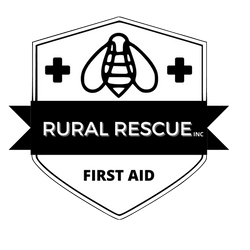You've probably heard the terms 'mask' and 'face covering' more times in the past year than you have in your entire life. The COVID‐19 pandemic has created an every day need for these items that has never existed before, but with all the different types of masks which ones are right for you? Do you get confused wondering about the difference between cloth, surgical, disposable, N95, and other masks? You're not alone! We've compiled a simple description for each mask, its intended use, and its intended user. As well at the end of this blog you'll find a video of some of the masks Rural Rescue carries being put to the flame test.
Cloth Mask: These masks were rarely seen before the pandemic and now it seems that every type of retailer is carrying them, so what's the deal? The cloth masks are intended for every day users that are going to low‐risk places. This would include the grocery store, the pharmacy, a restaurant, etc. Places where you are able to maintain social distancing for the most part and there isn't a high chance of COVID‐19 being in the air. Cloth masks work by catching some of the droplets and particulates that you breathe out; thus helping to prevent someone who has COVID‐19 from spreading it. These masks do not offer filtration of small particulates in the air.
Surgical/Disposable Mask: These masks come in a variety of levels, but all look very similar, confusing right?
Non-medical disposable or procedural masks provide the same type of filtration or protection as cloth masks. They work by capturing some of droplets and particles released by the wearer and are thought to slow the spread of COVID-19 if worn by people who are contagious. These masks do not offer filtration of small particulates in the air. We have these masks available in adult and youth sizes and they are an excellent alternative to the cloth mask for any low-risk situation.
ASTM Level 1: This is considered the general standard for medical professionals to wear in non-surgical situations, exam rooms, etc. They should be worn where there is no aerosol, spray, or fluids. These masks would be suitable for some healthcare professionals, individuals going to a doctors appointment, visiting the hospital, etc. They provide more protection than cloth masks and non-medical masks but they still do not offer filtration upon inhalation of particles.
ASTM Level 2: These masks have more layers than level 1 masks and offer some protection against aerosols, sprays, and fluids. It should be noted that these masks are still not tight to your face and don’t filter tiny particulates that may be in the air. These masks are suitable for healthcare professionals, first responders, and individuals that have to be in closer contact with others but where the risk of COVID-19 is still relative low.
ASTM Level 3: These masks provide a high-level of protection against aerosols, sprays, and fluids. They should be worn by anyone in a healthcare profession that may be exposed to these things. This includes in the operating room, dental assistants, dental hygienists, etc. It should be noted that these masks still are not a tight seal and do not offer filtration of particulates in the air upon inhalation.
KN95: KN95 masks were a new term that many people were unfamiliar with before April. These masks meet the Chinese standard similar to Canada’s N95 requirement. However, there are many low-quality KN95’s available that do not meet standards and do not provide the proper filtration. Rural Rescue does currently have a type of KN95 for sale. Our masks are a Canadian Red Cross product and we have performed qualitative fit tests on them to ensure they provide the proper level of particulate filtration. These masks work by filter a minimum of 95% of particulates in the air. KN95’s should be worn by individuals in situations at risk for exposure to COVID-19. Wearers should have a qualitative fit test performed on their mask to ensure they are able to get a tight seal and the mask is performing properly for them.
N95 Respirator NIOSH Approved: N95 masks should have a NIOSH approval to prove they meet proper standards as a respirator. These masks work by filtering a minimum of 95% of particulates in the air upon inhalation. To ensure proper fit wearers should have a qualitative fit test performed. These masks should be reserved for individuals at risk of contracting COVID-19 including healthcare workers, dentists, first responders, etc. N95’s are equipped with bands instead of ear loops ensuring a tighter seal.
We hope this information offers some clarity on the different types of masks available and which one is suitable for you.

